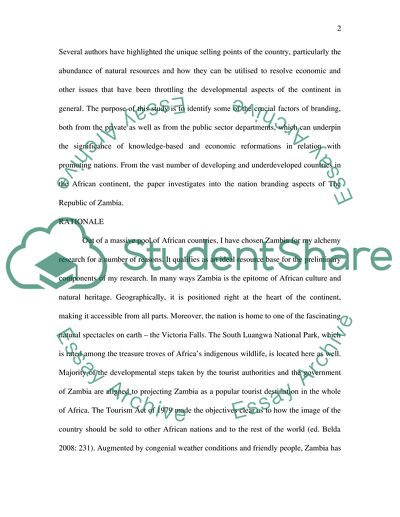Cite this document
(Nation Branding: Using Books to Stimulate Renewed Interest in Africa Research Proposal, n.d.)
Nation Branding: Using Books to Stimulate Renewed Interest in Africa Research Proposal. Retrieved from https://studentshare.org/marketing/1558362-nation-branding-using-books-novels-to-stimulate-renewed-interest-in-africa
Nation Branding: Using Books to Stimulate Renewed Interest in Africa Research Proposal. Retrieved from https://studentshare.org/marketing/1558362-nation-branding-using-books-novels-to-stimulate-renewed-interest-in-africa
(Nation Branding: Using Books to Stimulate Renewed Interest in Africa Research Proposal)
Nation Branding: Using Books to Stimulate Renewed Interest in Africa Research Proposal. https://studentshare.org/marketing/1558362-nation-branding-using-books-novels-to-stimulate-renewed-interest-in-africa.
Nation Branding: Using Books to Stimulate Renewed Interest in Africa Research Proposal. https://studentshare.org/marketing/1558362-nation-branding-using-books-novels-to-stimulate-renewed-interest-in-africa.
“Nation Branding: Using Books to Stimulate Renewed Interest in Africa Research Proposal”, n.d. https://studentshare.org/marketing/1558362-nation-branding-using-books-novels-to-stimulate-renewed-interest-in-africa.


